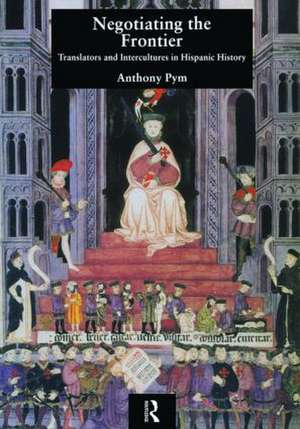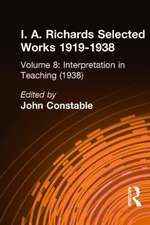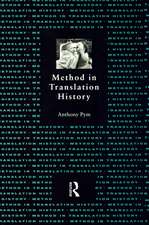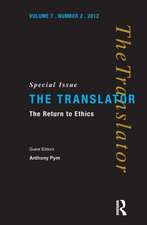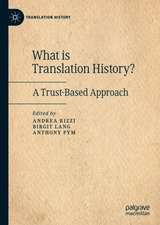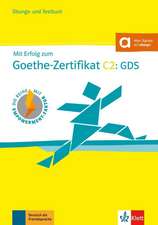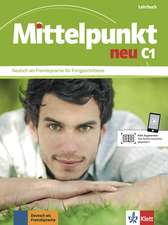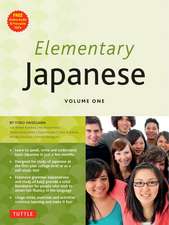Negotiating the Frontier: Translators and Intercultures in Hispanic History
Autor Anthony Pymen Limba Engleză Paperback – apr 2000
Individual case studies go from the twelfth-century Christian, Islamic and Jewish exchanges right through to the not unrelated complexity of today's translation schools in Spain, mining a history rich in anecdote and paradox. Further aspects trace key concepts such as disputation, the medieval hierarchy of languages, the nationalist mistrust of intermediaries, the effects of decolonization on development ideology, and the difficulties of training students for globalizing markets.
Preț: 248.76 lei
Preț vechi: 297.06 lei
-16% Nou
Puncte Express: 373
Preț estimativ în valută:
47.62€ • 51.74$ • 40.02£
47.62€ • 51.74$ • 40.02£
Carte tipărită la comandă
Livrare economică 21 aprilie-05 mai
Preluare comenzi: 021 569.72.76
Specificații
ISBN-13: 9781900650250
ISBN-10: 1900650258
Pagini: 280
Dimensiuni: 178 x 254 x 15 mm
Greutate: 0.52 kg
Ediția:1
Editura: Taylor & Francis
Colecția Routledge
Locul publicării:Oxford, United Kingdom
ISBN-10: 1900650258
Pagini: 280
Dimensiuni: 178 x 254 x 15 mm
Greutate: 0.52 kg
Ediția:1
Editura: Taylor & Francis
Colecția Routledge
Locul publicării:Oxford, United Kingdom
Public țintă
PostgraduateCuprins
Introduction; Chapter 1 The Abbot’s Gold; Chapter 2 Toledo and All That; Chapter 3 The Price of Alfonso’s Learning; Chapter 4 The Importance of Paper; Chapter 5 A Christian’s Rabbinic Bible; Chapter 6 From traslad - to traduc -; Chapter 6a Entr’acte : Imaginary Ships; Chapter 7 The Language of Empire; Chapter 8 The Language of Exile; Chapter 9 A Volcano Unbaptized; Chapter 10 Authorship in Translation Anthologies; Chapter 11 The Symbolic Olympics; Chapter 12 Training for Globalizing Cultures;
Descriere
Why would a Latin Qur'an be addressed to readers who knew no Latin? What happens when translators work on paper rather than parchment? Why would a Jewish rabbi translate a bible for Christians? This book uses such questions to discuss some of the most fundamental and complex issues in contemporary Translation Studies and Cultural Studies
